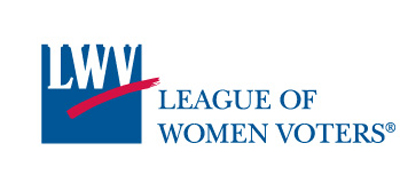By Kathi Ciskowski
I am very grateful that the following news story just came out via KOMO TV Problem Solvers. Everyone needs to know about this rule. It has to do with the difference between being fully admitted to a hospital as opposed to being there “under observation.” The difference can have huge financial implications. (The link to the story and the text follows this message)
This featured story is not about my 85 year old uncle, but last year, he fell and found himself in the hospital and then a skilled nursing home for recovery. When he was ready to leave the nursing home he received a bill for $18,000 because he had been in the hospital under an “observation” status rather than an “admitted” status so was not eligible for the skilled nursing home benefit under Medicare.
His care (a fractured shoulder and more) began at Northwest Hospital in Seattle and some of the hospital paperwork procedures were different than those at Overlake (the hospital in the story) but the final results were the same.
The important thing to take from this is: If you are caring for elderly parents, or if you have an accident yourself, the bottom line is to find out if you are in the hospital under “admittance” or “observation.” It can have huge financial impacts when you decide on what kind of hospital follow up care you choose to receive. Hope this saves you some money and surprises down the line!
WA state members of Congress Dave Reichert, Jay Inslee, and Jim McDermott are on the House Ways and Means Committee that is initially studying the bill H.R. 1543: Improving Access to Medicare Coverage Act of 2011. Please encourage them to support this.
To view the KOMO story, go to https://www.komonews.com/news/
Text from KOMO TV Problem Solver Story:
SEATTLE — For 84 years, Ruth Grew has been the picture of health. But last month, that changed.
“There was something really wrong,” said Hugh Grew, her son.
The retired librarian was suddenly crippled with back pain. Her daughter rushed her to Overlake Hospital Medical Center’s emergency room.
“She had debilitating back and hip pain; was essentially immobilized,” said Hugh Grew.
Ruth Grew had spinal compression fractures and spent three nights at the hospital. Then came the shocker: “We were in a Medicare-no-man’s-land that we didn’t know about!” said Hugh Grew.
Even though Ruth Grew stayed in a hospital room and slept in hospital bed, she was never admitted to Overlake.
“We learned in fact that she was not an in-patient, but was what they call under ‘observational status,'” said Hugh Grew.
To his shock, Hugh Grew’s mother was being treated as an outpatient. Then the next shocker: “observation status” means Medicare is off the hook to pay for any follow-up nursing home expenses after discharge.
“It’s a real shock to the wallet!” said Hugh Grew.
That meant Ruth Grew had to unexpectedly pay $8,400 to a nursing home for three weeks of rehabilitation.
“I wish we would have had news about observation status upon admittance to the hospital,” said Hugh Grew.
When asked how this could happen, the hospital’s care management director Dee Mann Aust said, “We’re very sorry about that. And we’re trying to learn from it, and we’re trying to improve what our process is. I’m glad someone is speaking up and saying it didn’t work for them.”
Ruth Grew isn’t the only surprised patient; others nationwide have joined a class-action lawsuit filed by The Center for Medicare Advocacy, which calls the practice a “charade to save money.”
Medicare officials told KOMO News they cannot comment due to the pending litigation, but its own data shows observation claims are on the rise from more than 800,000 in 2006 to more than a million last year.
The Grew family hopes this report warns patients to read up on Medicare.
“Even if you’re not on Medicare, know you’re insurance benefits, know what’s covered for you before you’re sick,” said Mann Aust.
But Overlake admits hospitals have a responsibility, too. None of the hospital paperwork that Ruth Grew received made any mention of her being under observation status.
Overlake assured the Problem Solvers that its goal is to make sure that every patient who is under observation status knows it. In fact, the hospital has put together a form for those patients, and says it strives to make sure the patient gets this information before he or she leaves the emergency room.
A group of bi-partisan lawmakers not happy with this practice is calling on all members of Congress to change it by passing the Improving Access to Medicare Coverage Act.
**If you are reading theOrcasonian for free, thank your fellow islanders. If you would like to support theOrcasonian CLICK HERE to set your modestly-priced, voluntary subscription. Otherwise, no worries; we’re happy to share with you.**








I have experienced this same issue in connection with a fall by my mother…in her case she was deemed financially responsible for almost $20k of care in a skilled nursing facility because she’d not been “admitted” to the hospital when brought in by an ambulance. Medicare covered her hospital costs, but not the SNF costs. Key concept: work with the attending physician to ensure that the patient is fully admitted, even though the hospital may prefer not to admit probably due to its overcrowding.
The reason hospitals admit to observation is that they are in fear that the Medicare audits will not allow inpatient admission. If the Medicare reviewers deem that the patient does not meet all the criteria for inpatient admission, they will come after the hospital for the money paid. This is called a RAC audit, look it up. You can blame Medicare (CMS) for anytime a patient is admitted observation. Believe me the hospitals much prefer inpatient admission, as the pay is about 15 times more than it is for observation